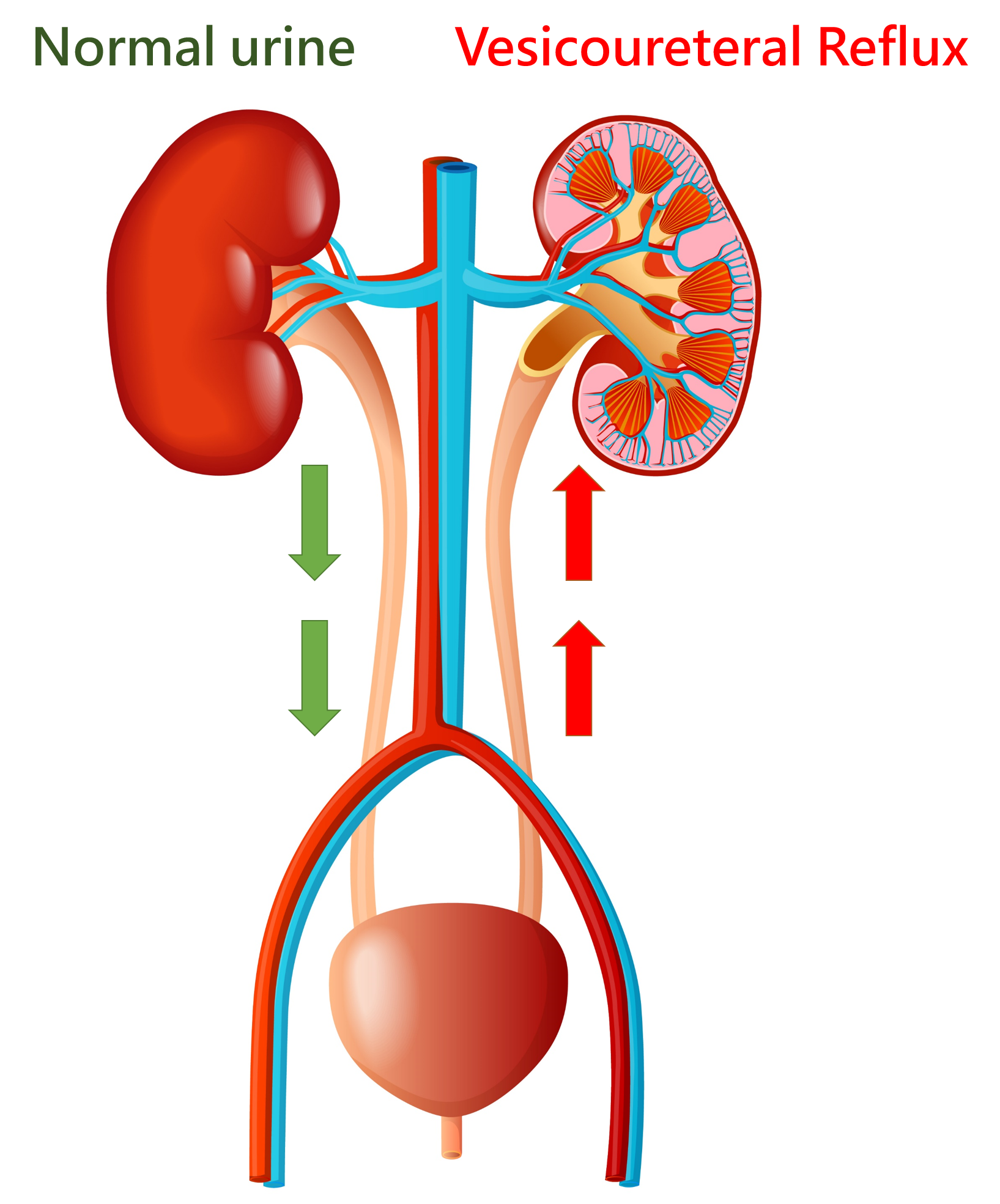“Urinary Tract Infection” is a term commonly known and also one of the common reasons for unknown fever in children under 2 years old (other reasons include otitis media and cold). Usually, the reason is discovered at the hospital after the children have experienced repeated fever. Apart from the insignificant clinical symptoms of infants, most children at this age could not clearly express their discomfort and if the children suffer from 2 or more urinary tract infection repeatedly, the clinical doctors often will consider the possibility of vesicoureteral reflux.
What is Vesicoureteral Reflux?
Vesicoureteral reflux is divided into primary and secondary. Primary vesicoureteral reflex is the most common form of congenital anomaly of kidney and urinary tract in children. Under normal conditions, the urine injects from the kidney to the bladder through the ureter, which is supposed to be one-way. However, approximately 1% of newborns have primary vesicoureteral reflux due to the congenital anomaly of ureter insertion site that causes some urine to reflex into the kidney. This would increase the possibility of bacteria shift to kidney and cause acute pyelonephritis. There are many reasons for secondary vesicoureteral reflux, including neurogenic bladder and the lower urinary tract obstruction caused by various reasons.
What are the symptoms?
Fever and Pyuria, and elder children will complain of backache. If children under 2 years old repeatedly suffer from urinary tract infection and hydronephrosis can be observed from the ultrasound examination, it is necessary to exclude potential vesicoureteral reflux.
What is the treatment?
The treatment includes medical and surgical treatment. About 80% of minor vesicoureteral reflux will recover automatically after 5 years of follow-up. In general, the patients will be followed-up routinely and will use antibiotics for treatment once they suffer from urinary tract infection. Less than 40% of severe vesicoureteral reflux (level 4~5 of reflux) will be recovered automatically after 5 years of follow-up. If frequent urinary tract infection occurs, such children may need to discuss with the clinical doctor for surgical treatment, such as topical hyaluronic acid injection or the applicability of urinary tract reconstruction. Severe scabbing on the two kidneys will eventually damage the renal function and once it progressed to end-stage renal disease, the patient will need kidney replacement treatment.


